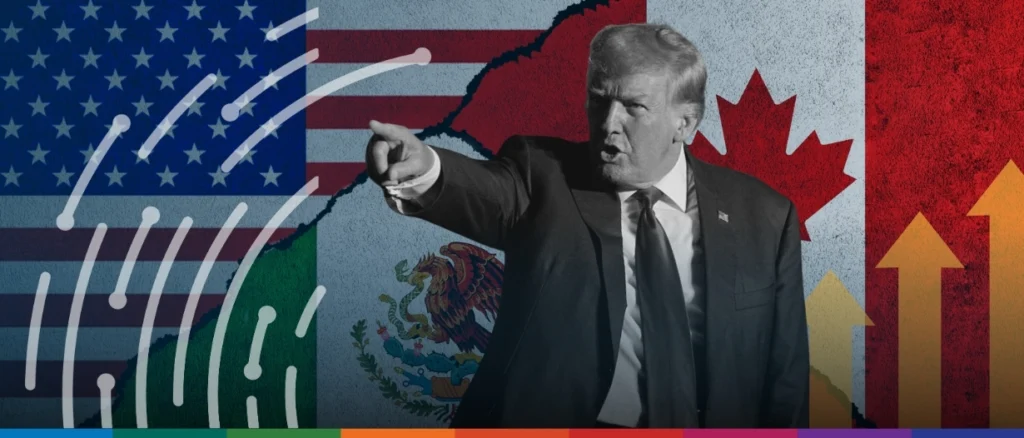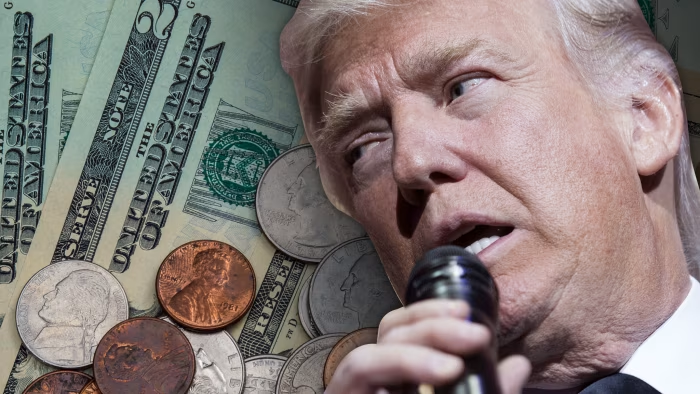The US economy rebounded sharply in Q2 2025, with GDP growing at an annualized 3.3%, surpassing earlier estimates. Learn what fueled this growth, consumer spending trends, and the impact of Trump’s trade policies.
Table of Contents
🚨 US Economy Shocks Everyone: Q2 Growth Way Stronger Than Expected!
Introduction
The US economy staged a stronger-than-expected comeback in the second quarter of 2025, driven by resilient consumer spending despite ongoing uncertainties surrounding President Donald Trump’s trade policies. According to the Commerce Department’s latest report, the nation’s GDP grew at an annualized 3.3% between April and June, surpassing the initial estimate of 3%.
This upward revision underscores America’s economic resilience but also raises questions about how sustainable the growth really is as underlying pressures continue to mount.
1. US Economy Rebounds in Q2 2025
The latest data highlights a robust recovery from the 0.5% contraction in Q1 2025, a period marked by slowing investments and trade uncertainties. In Q2, however, the US economy shifted gears:
- Revised GDP Growth: 3.3% (up from 3%)
- Key Drivers: Higher consumer spending + positive trade balance
- Context: Resilient households helped offset weak business investments
Despite geopolitical challenges, consumer confidence played a crucial role in keeping the economy on track.

2. Consumer Spending Surges Despite Uncertainty
Consumer spending, which makes up nearly 70% of the US economy, remained one of the biggest drivers of the Q2 rebound. Rising wages, low unemployment, and easing inflation gave households more room to spend.
- Increased spending on retail, travel, and entertainment
- Growing demand for housing and durable goods
- Uptick in online shopping and services
However, the question remains: Will consumer spending remain strong if inflation ticks up again or trade tensions escalate?
3. The Impact of Trump’s Trade Policies
President Donald Trump’s trade war policies continue to cast a shadow over the broader economy. While tariffs on several imports have raised costs for businesses, certain sectors — particularly domestic manufacturing — saw temporary gains.
Positive Effects:
- Boosted short-term exports due to supply chain shifts
- Increased domestic demand for certain US-made goods
Negative Effects:
- Higher costs for imported goods and raw materials
- Uncertainty discourages long-term corporate investments
Economists warn that while the Q2 rebound is promising, prolonged trade disputes could limit GDP growth in the second half of 2025.
4. Sector-Wise Economic Performance
| Sector | Performance in Q2 2025 | Impact on GDP |
|---|---|---|
| Retail & E-commerce | ↑ Strong growth | High contribution |
| Manufacturing | ↑ Moderate recovery | Neutral effect |
| Housing Market | ↑ Slight rebound | Positive impact |
| Technology Sector | ↑ Robust performance | Strong boost |
| Energy & Oil | ↓ Decline in exports | Negative drag |
This sectoral breakdown highlights that while some industries are thriving, others are struggling under current policies.

5. Economic Risks on the Horizon
While the US economy shows strength now, several risks could derail growth in the coming quarters:
- Inflationary Pressures → Rising commodity prices could squeeze consumers
- Federal Reserve Policy → Potential interest rate hikes could slow borrowing
- Trade Disputes → Prolonged tensions with China, Europe, and other partners
- Job Market Cooling → Hiring trends may slow amid global uncertainties
Economists warn that a 3.3% GDP growth is encouraging but could be unsustainable without structural improvements.
6. Expert Opinions on the GDP Revision
Top economists and financial analysts are cautiously optimistic about the revised GDP figures:
“Consumer resilience is keeping the economy afloat, but cracks are visible beneath the surface. Unless business investment picks up, this momentum could fade by Q4.”
— Sarah Mitchell, Chief Economist, Bloomberg
“Trade-related uncertainties remain a wild card. If tariffs persist, we might see another slowdown by early 2026.”
— James Walker, Senior Analyst, Yahoo Finance
7. US Economic Outlook for the Rest of 2025
The Commerce Department’s report highlights that the US economy is in a delicate balancing act — showing strength in consumer sectors but vulnerabilities elsewhere.
Projections for Q3 & Q4 2025:
- Expected GDP growth: 2.5% – 2.8%
- Potential easing of inflationary pressures
- Modest job growth across sectors
- Continued volatility due to Trump’s trade policies
FAQs
Q1. What is the US GDP growth rate for Q2 2025?
The US GDP grew at an annualized rate of 3.3% in Q2 2025, higher than the previous estimate of 3%.
Q2. What caused the stronger-than-expected rebound?
The surge was primarily driven by consumer spending and positive trade swings, offsetting weaker business investments.
Q3. How do Trump’s trade policies affect the economy?
Tariffs have boosted domestic production in some sectors but increased costs for many businesses, creating long-term uncertainty.
Q4. Will the US economy continue to grow in Q3 and Q4 2025?
Economists expect moderate growth in the coming quarters, but inflation, trade disputes, and Federal Reserve policies remain key risks.
Q5. How does this affect consumers and job seekers?
A strong economy typically supports higher wages, better job opportunities, and increased consumer confidence, but ongoing trade tensions could impact hiring in some industries.

